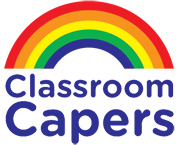items - £0.00
Teacher Talk Blog | Does humour promote good learning?
4 December 2013 14:02:33 GMT
Does humour promote good learning in the classroom? |
Is humour essential in the classroom or frivolous indulgence?
The following article looks at what experience and research shows when examining humour in the classroom.
If at first you don’t succeed, skydiving isn’t for you!
Some of the claims for using humour in your interaction in the classroom are that it:
| Engages the child. | Actually stimulates more of the brain (lights up more of the brain). |
| Heightens creativity in problem solving. | Helps with memory retention. |
|
Helps positive emotion and learning environment (strong emotions lead to strong memory). |
Helps promote a more relaxed classroom environment |
| Gives students the feeling that teachers are more human | Reduces stress. Diffuses tense situations |
Humour taps into our natural pattern recognition ability, we learn to quickly anticipate the ‘next step’ in a sequence, whether it’s a story, a sentence, an order of thought, movement or an image. Humour is the unexpected next step.
Two major factors that have had an adverse impact on learning are STRESS and POVERTY. Humour is well known to reduce stress. Research shows that stress diminishes learning.
Humour – What is appropriate?
Humour relating to course content (subject based) is always appropriate - Jokes, riddles or puns, telling funny stories. Humorous songs and videos. When using cartoon characters and try to maintain a balance between form and content.
According to Kids health, children laugh about 200 times each day, adults laugh only 15 to 18 times. Make your classroom healthier and happier by making humour part of your daily activities.
This article is written by Akhtar Khokar and is an excerpt taken from a monthly newsletter written by Rachel Kelly, Assistant Head and AST at The Urswick School in Hackney, London. We thank the school for allowing us to share their great articles and we hope it will prove useful and insightful to our followers.












